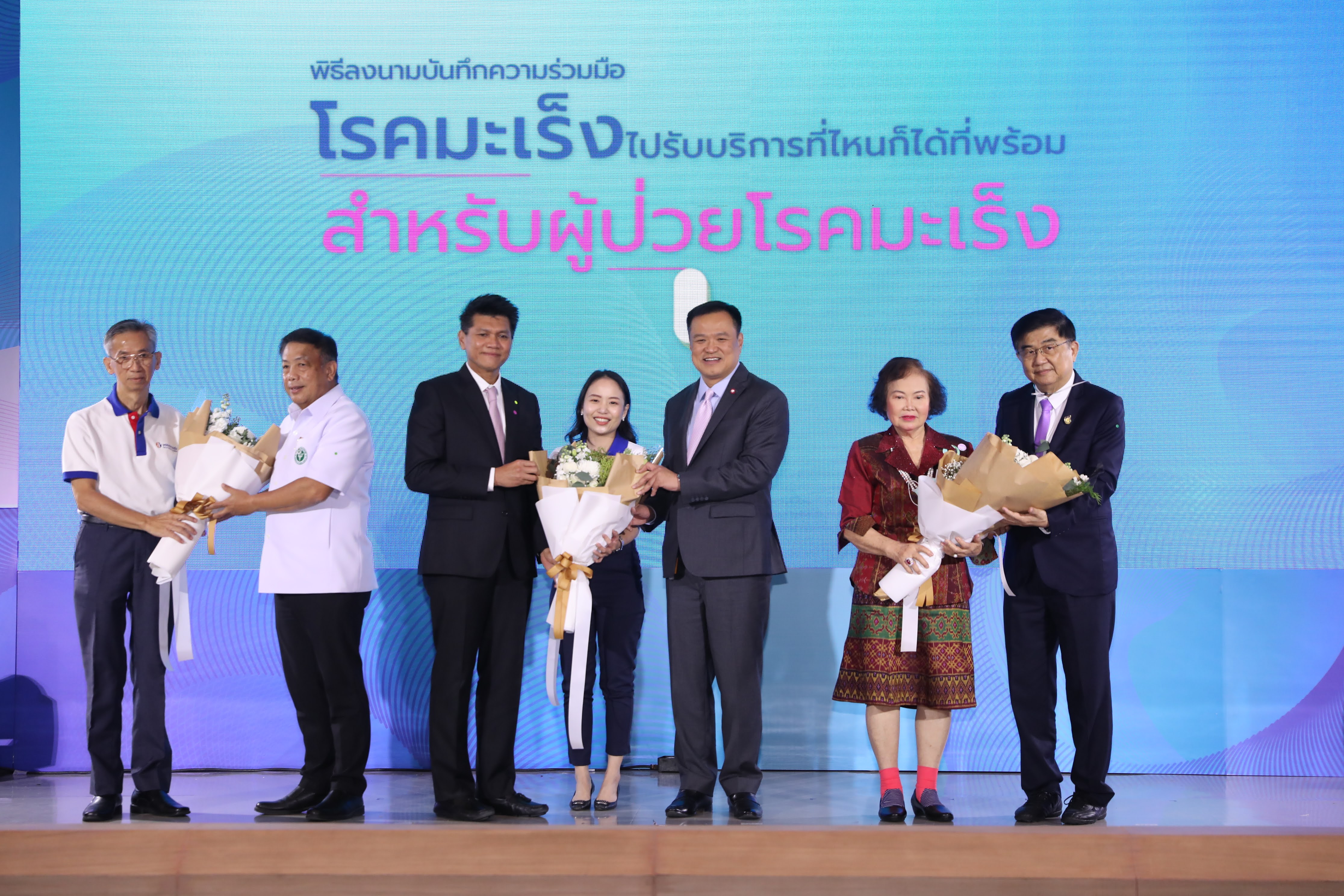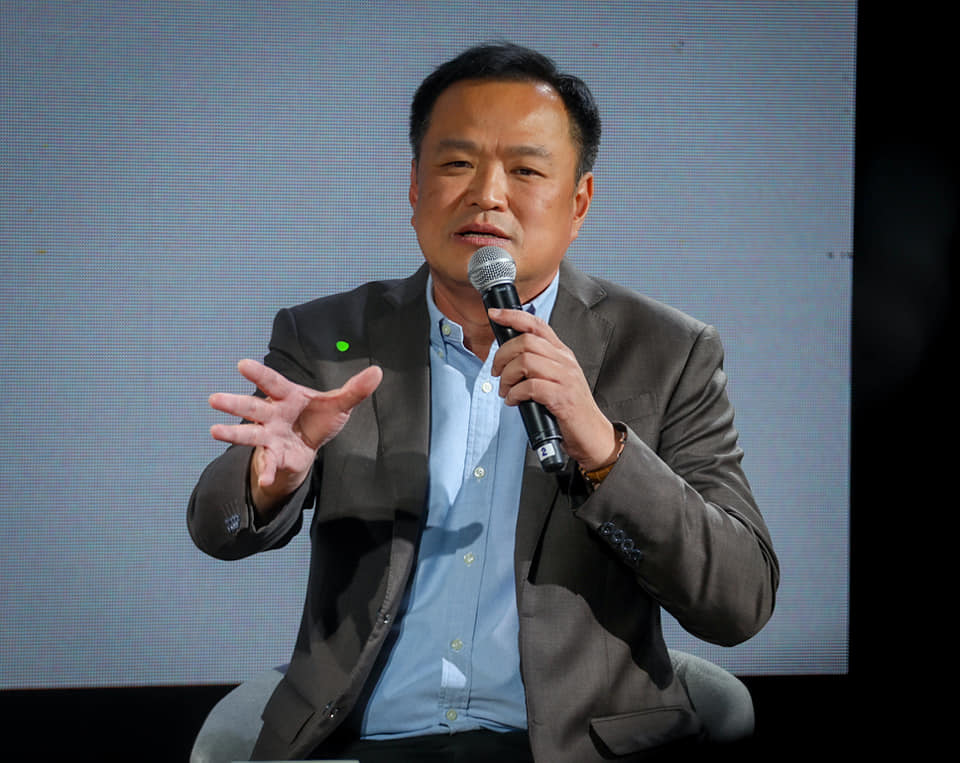
- Home
- DescriptionNews
New cancer care system cuts waiting time and saves more lives

New cancer care system cuts waiting time and saves more lives
Seeking a large government budget for funding a new healthcare project normally is an uphill task, according to Deputy Prime Minister and Public Health Minister Anutin Charnvirakul who usually leads a role in presenting to the cabinet such a new project and convincing as to why the project deserves the amount of budget requested.
That was the reason why he was extremely surprised when his request for a budget for funding the procurement of seven radiotherapy machines, which each costs more than 100 million baht, was endorsed by the cabinet without any question raised over the procurement plan.
Also, when the same procurement plan was submitted to the National Economic and Social Development Council for approval, the council green-lighted it immediately, which was totally different from when he submitted and defended other procurement plans previously, said Mr Anutin.
“That is a proof this project (cancer care system improvement) is highly important, considering how easy it won approval by all sides,” he said.
“More than 100 million baht per machine may sound vastly expensive; but this amount of money just can’t compare with the benefits this new technology has to offer when treating cancer patients,” he said.
The seven machines are now being used at different cancer treatment centres under jurisdiction of the Public Health Ministry in all parts of the country and cancer patients in any parts of the country no longer have to travel all the way from their provinces to Bangkok or only other large cities for cancer treatment.
That is only a part of cooperation between the ministry and the National Health Security Office to improve access to good quality cancer treatment and care for patients under the Universal Coverage Scheme (UCS).
Starting Jan 1, 2021, the cooperation, entitled “Cancer treatment in any healthcare facilities that are capable of treating it”, is one of four core areas of healthcare service improvement Mr Anutin expects from the UCS.
One of the other three service improvement areas is allowing UCS patients to freely seek healthcare services at any primary care units in the same healthcare network, which has been first piloted in Bangkok and is now being expanded to cover other parts of the country.
The other two areas are switching from using paper-based hospital referral documents to a new electronic hospital referral system and allowing UCS patients to immediately change their registered primary care units to a new one without having to wait for 15 days as they usually were required to in the past.
The electronic hospital referral system is expected to be expanded to cover all areas of the country in 2022.

Cancer is a leading cause of deaths in Thailand. Each year about 122,757 people are diagnosed with cancer, while about 80,665 cancer patients die, said Mr Anutin.
Because cancer treatment is usually costly and comes as a huge financial burden to many families, the project to improve the cancer care system has been created with an aim to improve the outcome of cancer treatment, he said.
An important problem facing the old cancer treatment system was a long queue of cancer patients waiting for their turns to receive proper treatment at state-run hospitals capable of treating cancer, he said.
“As so many patients who needed to be treated with radiotherapy and chemotherapy were waiting in a long queue for treatment, the wait was too long for some who died before they actually had a chance to begin the life-saving cancer treatment,” he said.
Timely treatment is the key to success in treatment of cancer detected in its early stage, he said.
In preparation for implementing this cancer care system improvement project, the Public Health Ministry had enhanced the cancer treating capacity of many of its hospitals and medical institutes nationwide.
And as a result of that hard work, the ministry now has sufficient cancer treating healthcare units in all of its health regions. A total of 36 units are capable of offering radiotherapy, while a total of 164 units are capable of offering chemotherapy.
With the new cancer care system in place now, when a new cancer case is confirmed, the doctor will immediately contact the centre for cancer patient referrals that will locate a cancer-treating unit capable of receiving this new patient for treatment.
And since the database systems of these cancer-treating units are now linked up into one whole system, a course of cancer treatment no longer necessarily involves only a single cancer-treating unit.
A cancer patient may switch from one hospital to another during a course of treatment so that he or she won’t have to wait until the cancer-treating equipment is available for use before beginning a new treatment session.
And in case any cancer patient happens to require more advanced cancer treatment technology than any hospitals nearby can offer, the patient will be allowed to choose a larger hospital in other areas as well.
This way, the treatment will continue without any interruptions and produce good results, said Mr Anutin.
And in even more advanced development in cancer treatment and care, at least seven large hospitals now offer an opportunity for cancer patients to partially undergo chemotherapy at home, he said.
This service is created with a belief that cancer patients will feel happier if they can receive chemotherapy at their own homes rather than in a hospital somewhere far away from home and families, he said.
The seven hospitals are Ramathibodi Hospital, National Cancer Institute, Rajavithi Hospital, Somdech Phra Pinklao Hospital, Chulabhorn Hospital, Chonburi Cancer Hospital and Lopburi Cancer Hospital.
And these are how the country’s cancer care system has been being improved so far for the sake of better access to and outcome of cancer treatment and care offered under the UCS, said Mr Anutin.

